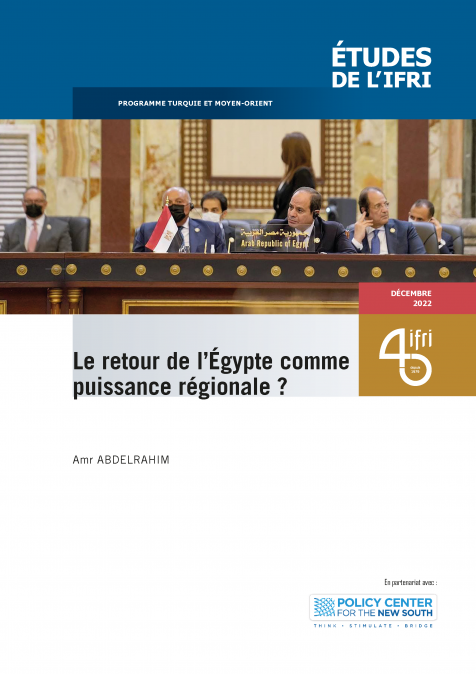Publications /
Policy Paper
Depuis quelques années, l’activisme accru de la politique étrangère égyptienne – dans son voisinage africain, méditerranéen et moyen- oriental – donne l’impression du retour d’une puissance régionale dont l’influence s’est pourtant essoufflée à la fin des années 1960. L’avènement du président Abdel Fattah Al-Sissi marque une rupture avec la « diplomatie réactive » de l’ère Moubarak. Cependant, le pays ne dispose simplement plus de ressources militaires, économiques et culturelles lui permettant d’influencer le cours des évènements sur la scène régionale. Si la stratégie de multi-alignement poursuivie par l’Égypte, à travers la multiplication des partenariats sécuritaires et économiques avec la Russie, la Chine et l’Union européenne, lui a permis de maintenir une marge d’autonomie vis-à-vis de ses soutiens golfiques, le bilan mitigé de sa politique étrangère en Afrique, en Méditerranée orientale et au Moyen-Orient montre que le pays ne dispose plus d’une « capacité d’influence ». Aujourd’hui, l’avenir de l’autonomie de la politique étrangère de l’Égypte est lui-même menacé par l’aggravation de sa dépendance des monarchies du Golfe face à la crise économique qu’elle traverse depuis le début de la guerre en Ukraine.



